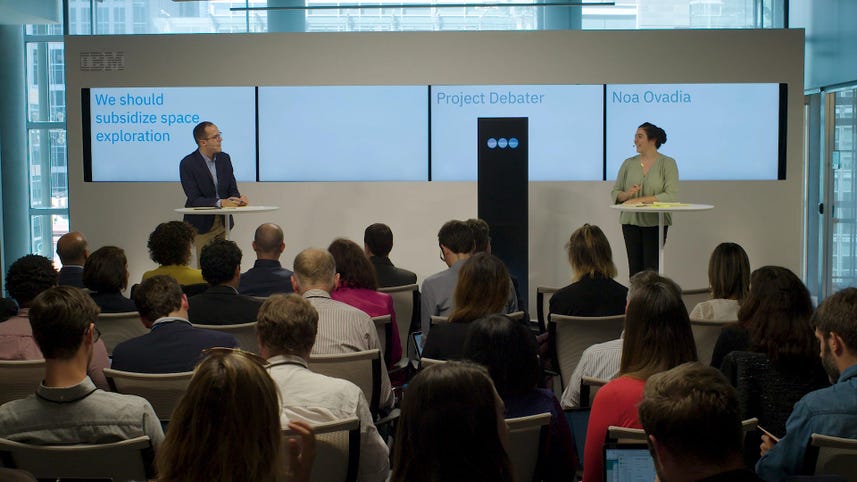
I would like to offer a different view.
It's one small step for machine, one giant leap for machine kind.
IBN's newest artificial intelligence system took on experienced human debaters and won a live debate.
Subsidizing space exploration is like investing in really good tires.
It may not be fun to spend the extra money, but ultimately you know both you and everyone else on the road will be better off.
Called Project Debator, the system scans hundreds of millions of articles and journals to develop its position on a topic.
Then it creates a narative to support its argument.
It has to be able to understand.
Language in a way that will enable it to figure out what are arguments that support it's stand of the debate so we have development a machine learning algorithm it has neural networks deep neural networks in it it has other machine learning technologies in it.
Project debater took part in two debates.
Each consisting of an introduction, a four minute rebuttal, and a concluding statement.
And in the second debate, the project debater actually convinced 20% of people to change their minds in favor of it.
The AI even predicted and rebutted arguments before the human opponent made them
[MUSIC]
They were learning what is the rationale behind how a debate is structured.
How do you build an argument to make it persuasive?
IBM's human computer challenges began in 1997 when Deep Blue beat world chess champion, Gary Kasperov, and in 2011 IBM Watson
[APPLAUSE]
won jeopardy.
[APPLAUSE] But it's researchers say Project Debata has applications beyond just winning debates, like in the legal and financial fields.
What we are trying to develop is a demonstration of technology that has a lot of power.
To aid human beings, to expand our mind, to get better insights.
Google is also developing an AI called Gplex that conducts natural conversations on the phone.
I'd like to reserve a table for friday the third.
In San Francisco Lexy Cavates, CNET dot com for CBS News